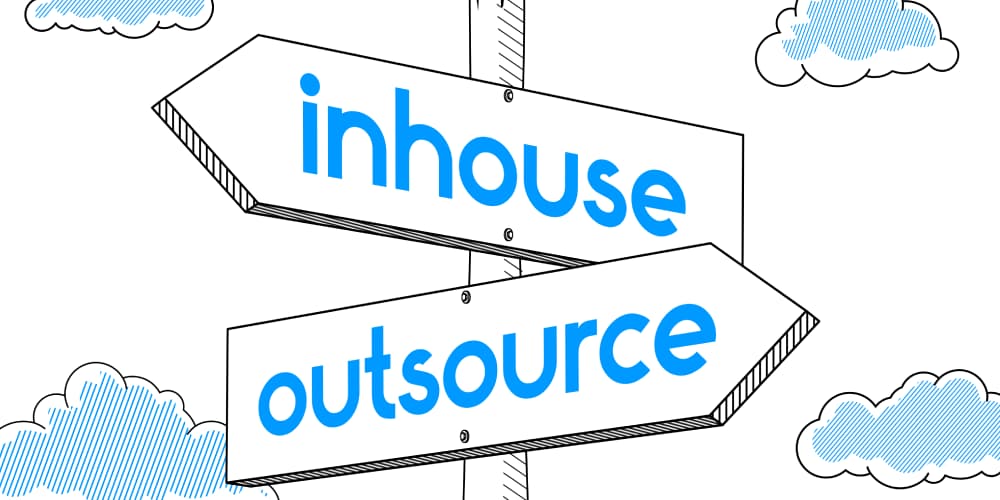BSHORE
Actionable Guides and Tips for Successful
Offshoring to The Philippines
Difference Between Outsourcing And Offshoring

Outsourcing and offshoring are both very important service sectors in the modern business world. Both provide organisations all over the world with the option to outsource specific business functions and processes or set up offshore business units in hopes of optimising their business operations and increasing their profit.
Both offer services beneficial to many companies and organisations, however, many still tend to confuse both these terms whereas, in reality, both trades are unique in their own right.
The Main Difference

Many people tend to think of offshoring and outsourcing as the same thing. Sometimes they are even used interchangeably. However, the two terms are vastly different.
In offshoring, the business gets work done in a foreign country whereas, in outsourcing, someone else does the work for the business. For example, if a company hands over its marketing or payroll to a third-party provider, it will be called outsourcing. For offshoring, the business needs to transfer core processes and functions to the extension of the company set-up in another country, for it to be called that.
History
The terms outsourcing and offshoring may be coined in the modern world but these practices have been around for decades.
In the last few decades, a huge boom for these services is seen. Many companies looked into outsourcing certain things especially short-term projects to avoid disrupting the flow of work of their workers. As for offshoring, it can simply be explained as taking a company on a multinational level. It begins with growing a start-up company from anywhere around the globe and opening business expansions or offices in another country much later on.

Who Does The Work?
Outsourced tasks are completed by a third-party provider where companies who availed their services have much little to say over the process of how the work is done. Outsourced services are usually offered by contractual workers or agencies wherein the third-party providers have control over the professionals that will be working on the project.
Offshored services, on the other hand, is completed by the company’s workers. The only difference is that these services are accomplished in a foreign country. In offshoring, you have the power to hire, fire, and delegate tasks between your employees. You have control over the processes, making it easier to build more efficient ways to accomplish the tasks.
For example, there’s a difference between outsourcing support services and offshoring customer support. Outsourcing means you’re looking for a third-party provider to accomplish this specific task for your company, taking a hands-off approach in most of the processes and workforce management. For offshoring, it means delegating the support services of company A to your company B.
Place: Outsourcing Vs Offshoring
Offshoring is always accomplished outside the local area of the business, thus the term offshore. It’s mostly done in foreign countries for either less expensive workforce and material cost or for taking advantage of advanced technology and services.
Does the same thing apply to outsourced services? Yes and no. Many fail to realise that outsourcing can be accomplished using the services of nearby companies, it doesn’t necessarily have to be done abroad. Outsourcing simply means outsourcing to third-party providers, internationally or locally.
Reliance: Who Is The Boss?
In outsourcing, businesses rely on third-party providers to get the work done. The only way to communicate concerns through outsourcing is by talking to the personnel in charge of the project or contract deal. The third-party provider is the one directly in charge of the workforce.
Au contraire, you are the boss in offshoring. You have the power to manage your staff and directly communicate with them. As the boss, you don’t have to rely on anyone and have access to freely speaking to your employees to discuss goals and tasks to be accomplished by the business.
There are similarities and differences between outsourcing and offshoring. There is no doubt that the similarities are the reason why these terms are continuously used interchangeably. Hope this quick read helped you differentiate the two and appreciate their unique and distinct concept between them.
Choosing either of the two is both beneficial for nay business. However, it’s best to see which one fits your business structure more and which one offer greater benefit to your company!
Learn more about offshoring in the Philippines with us.